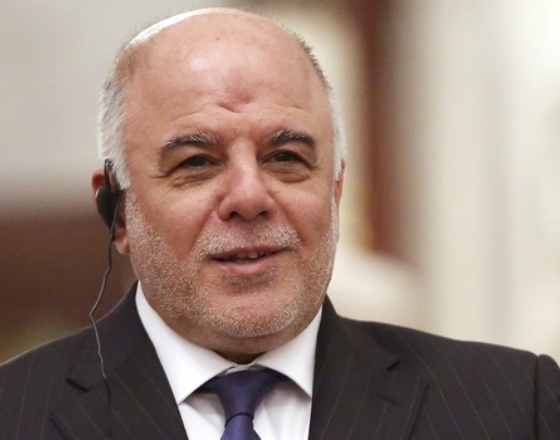
Iraq’s parliament this week endorsed a Cabinet reshuffle as part of reforms proposed by Prime Minister Haidar al-Abadi, who has lacked a functioning administration since March amid opposition from powerful political foes.
The lawmakers have now endorsed five ministers, including Jabar Luaibi as Oil Minister, in a move that is likely to encourage international oil companies to resume spending in the giant oilfields in the Basra region.
“All the nominees are independent technocrats, specialists, and have experience in the fields they were chosen for,” government spokesman Saad al-Hadithi said. “Today’s move will improve government performance.”
Abadi, who took office in 2014, has faced an uphill task in carrying out his pledge to combat corruption and improve government efficiency.
Entrenched political interests frustrated his efforts to replace political appointees with independent technocrats. Public services have deteriorated since the 2003 US-led invasion, while a power vacuum has allowed politicians to enrich themselves amid lack of governance.
As a result, Abadi faced massive street protests demanding the overhaul of a political system that has encouraged cronyism, corruption and slowed the fight against Islamic State, which still occupies large parts of northern Iraq.
In April, thousands of supporters of radical cleric Muqtada al-Sadr broke into Baghdad’s heavily guarded Green Zone, which houses parliament and several foreign embassies. They demanded speedy efforts to curb the influence of powerful political parties.
The protests helped Abadi to pull together his new Cabinet, which can now try to tackle the nation’s most pressing problems.
And he seems to have got off to a good start — Luaibi sounded optimistic about reaching an agreement with the Kurdistan Regional Government (KRG) over oil policy differences.
Tensions between the KRG and Baghdad reached a peak in 2015 after officials from both sides accused each other of failing to abide by the terms of an oil revenue-sharing deal struck in December 2014.
Under the deal, the KRG was to receive 17% of the federal budget in return for exporting 550,000 barrels per day of oil to Iraq’s State Organisation for Marketing Oil (Somo) at Turkey’s Ceyhan port.
Luaibi says he is ready to explore ways of resolving the dispute with the KRG. Such a move would see the central government take control of Kurdish oil sales in exchange for the resumption of federal funds to a region that is facing severe economic problems arising from low oil prices and the fight against the jihadists.
The KRG responded positively to Luaibi’s olive branch, saying it is ready for serious negotiations to resolve problems with Baghdad.
Further good news emerged from Iraq this week, with oil officials in Basra saying they had reached agreement with BP, Shell and Lukoil to restart stalled investment in the oilfields they are developing.
Renewed investment may add a further 250,000 bpd next year to Iraq’s current estimated output of 4.6 million bpd.
If Abadi succeeds in burying the festering oil dispute with the Kurds and paying international companies for their oilfield work, the positive outcome in terms of increased revenues should buttress his position against political foes and facilitate his dream of driving out Islamic State from Mosul.
original source: http://www.upstreamonline.com/live/1441783/iraq-dares-to-hope-for-brighter-future
